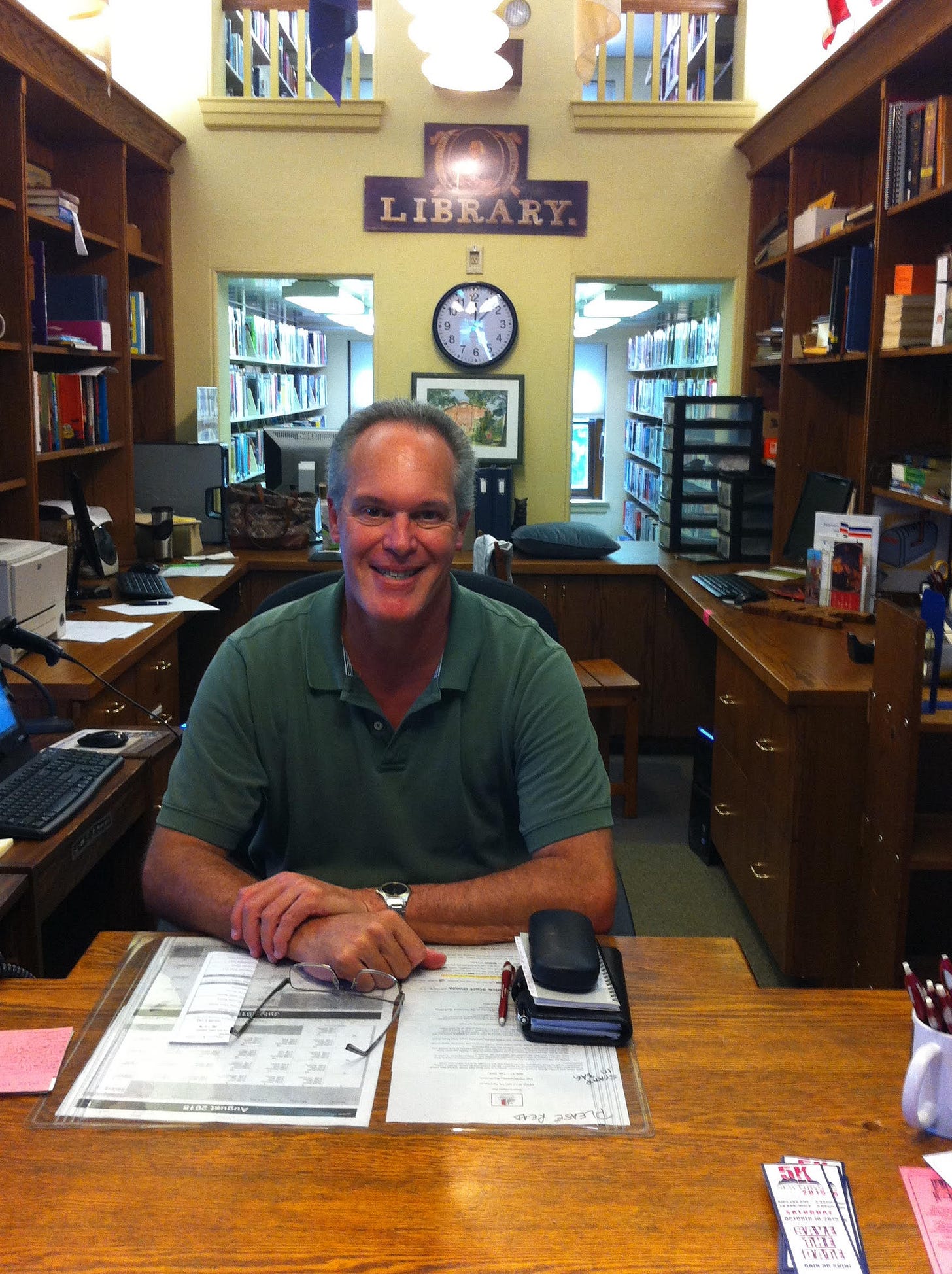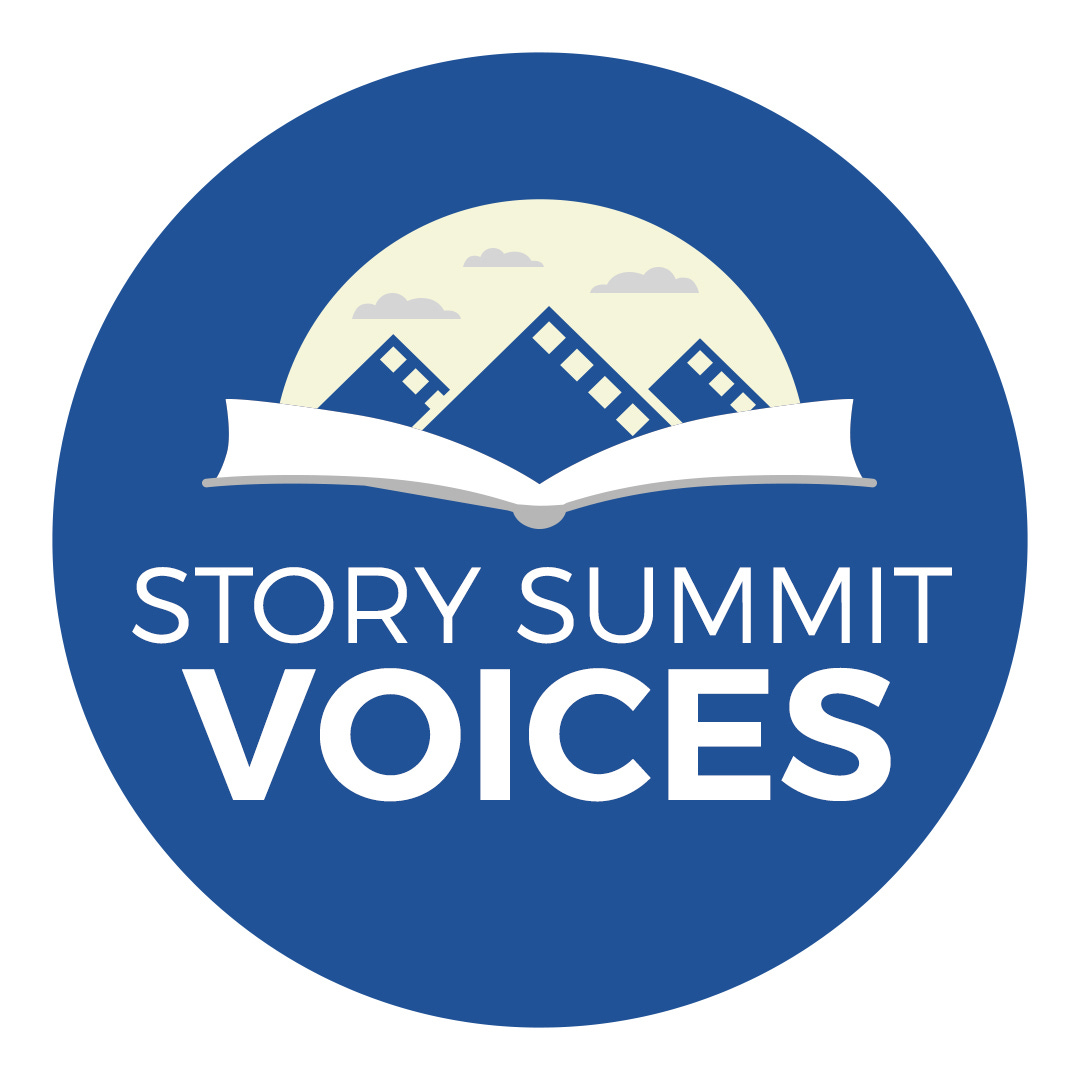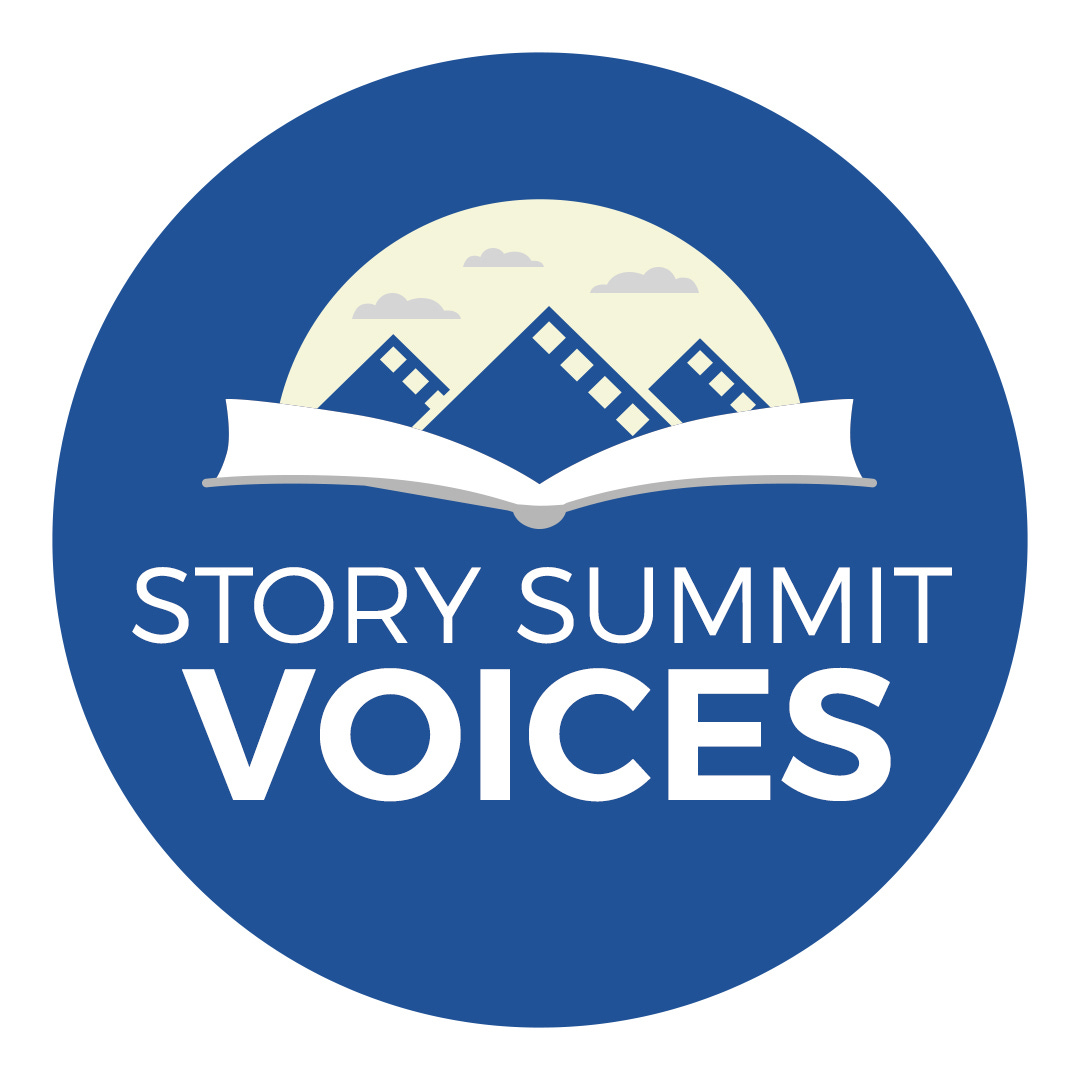Family: An Endless Well of Stories
Reflections on Love, Legacy and the Ties That Bind
Welcome to our living anthology, celebrating and supporting the talent of the emerging and seasoned writers of Story Summit.
Family members fill our lives with moments both heartwarming and heart-wrenching. Their quirks, conflicts, and expressions of love—or lack thereof—shape our stories, giving us tales of joy, sorrow, resilience, and humor. Whether the memories are cherished or challenging, they become the raw material for powerful writing—rich with emotion, depth, and truth.
This week we’re excited to present works from three Summiteers—Steven Kunes, Vicki VanArsdale, and Rob Shader—each one sharing intimate, endearing and relatable stories in honor of their own family members.
Enjoy this week’s submissions. May they inspire you to write and share your own stories!
Discovered by TV legend Norman Lear at age 26, Steven Kunes has worked on many notable shows over the last four decades. He currently writes and produces the hit comedy series “Over My Dead Body” for Amazon Prime, is a TEDx speaker with his popular "Square One at 60," and has written the opening monologue for the Oscars since 2022.
When asked what inspired Steven to write this story, he shared, “I had a front row seat to another human being’s redemption and could personally relate to it. I saw with my own eyes that people can change for the better in an instant. In the current times in which we live, I thought this to be a timely message to share with the world.”
“My Uncle’s Teshuva” by Steven Kunes
My uncle, who died a year ago, was a racist. I've dedicated much angst to sharing that, but in the end, I decided that since he was unapologetic about being that way, I'd be unapologetic in my writing about it.
As a child, I would describe him as an Archie Bunker-type racist. People understood the reference and the description fit. My uncle wouldn't go out and deliberately say or do things to people, but in the comfort of his own home...forget about it. He was an equal-opportunity hater, and family dinners often consisted of him spouting angry words toward any and every group. He included Jews—his own group. I took some solace in that. If you hate everyone, do you really hate anyone? Was he a racist or a misanthrope? There's a kind of fairness in misanthropy.
His was a totalitarian household, and never would I have felt safe in contesting his views. I digested myself more than the food, building my own views and arguments in secret while simultaneously trying to focus on his many fine traits and overlooking this fatal one. When I became a father, I vowed to myself that my children would never have to sit and listen to such ugliness. Uncle J. must've felt it and respected it, because in twenty-six years of holiday meals with him and my children, I never had cause to leap to my feet and shout, "Enough!"
About a year ago, he declined rapidly, going from feeling discomfort while eating his eighty-seventh birthday dinner to dead from stomach cancer in under a month. It was sudden and shocking, and I'm just now beginning to tease apart the experiences that happened around it.
His diagnosis arrived on a Thursday. They scheduled an MRI for the following Tuesday to find out more. My uncle looked me in the eye: "I'll be dead by then." I agreed. Despite his flaws, he was still my powerful uncle, and I never doubted his certainty. In the days that followed, we attempted to set up hospice and learn his wishes for a funeral. The internment of his ashes. What kind of service. Although he lacked affiliation with his faith in a traditional sense, he wanted a rabbi. In the end, we cling to ritual.
A few days later he was in the hospital. It was a hard way to die (is there an easy one?) and his final hours of pain and consciousness were hard to bear, even for the staff. His doctor was the floor doctor, not someone we knew. She was kind and spent quite a bit of time with him, and they talked when he was able, the white old racist and the young black woman in charge of his care. I saw him take her hand tenderly more than once and look into her eyes. "You're a good doctor," he would tell her. Her eyes would well and mine would overflow. She couldn't know how meaningful these moments were.
He died, and my cousins and I made funeral arrangements. We found a rabbi near his home (my uncle lived in New York) who was retired but agreed to officiate. We hired a singer to close the ceremony with Amazing Grace, as my uncle had requested. The lyrics were printed on the back of the memorial leaflet. The rabbi was taken aback by the choice, possibly even angry. He introduced it saying, "He wanted this Christian hymn sung. It's not something we do. I guess he heard it somewhere." Then he left, pushing through the crowd, getting in his car, and driving away while we were still singing.
I didn't see the rabbi leave, and when friends told me about it later, I wanted to find him and scold him. I wanted to tell him that the hymn is about redemption. That it was written by a slave ship trader who had seen the wrongness of his actions and reformed himself. But in the year since his death, I see that it wouldn't have mattered. I will leave the rabbi to his own prejudices and pray that his knots will loosen as well.
In Judaism, there’s a term known as teshuva that defines one’s redemption and its terms of occurrence. Seven hundred years ago, Rabbi Hillel wrote, “teshuva can come bit by bit over many years, or in a single moment,” and I believe it’s the latter that applies here. For me, Amazing Grace will always be a song about my uncle’s self-awareness and hope for redemption, a redemption that came late, but came, nonetheless.
Vicki VanArsdale is a writer and animal lover who lives at the Jersey shore with three cats and knows that a Jersey tomato, fresh off the vine with a sprinkle of salt, defines summer. When not writing short stories and essays, she writes screenplays—mostly comedies and rom-coms—and is also ghostwriting a memoir. She holds a Master of Science in Health Communication from Boston University and works in public health, but she dreams of opening a cat café and writing full-time. Her work has also been published in the Broadkill Review.
This piece was inspired by Vicki’s mother, who passed away in 2003. Now a memoir, it’s presented here in its original form, as an experimental 500-word one-sentence short story.
“A Good Mother” by Vicki VanArsdale
I told her she was a good mother a few days before she died even though I didn’t totally mean it at the time; though now, all these years later, I realize she was a good mother and she did the best she could, given her bipolar disorder and emotional issues that stemmed from her speech impediment that made her sound a little bit like the teacher in the Charlie Brown TV specials—it must have been hard to live like that in the days before the internet where you had to call and talk to strangers to make a late bill payment or to schedule a doctor’s appointment—so yes, as I see it now, she was a good mother because we always had home-cooked meals and a clean house and a live Christmas tree full of sparkly ornaments and presents underneath it that were paid for with money she saved from her Christmas club account, and homemade sausage and cheese bread and almond crescent and ricotta cheese cookies, and yes, she was a good mother because we always had clean clothes to wear to school though a podiatrist recently pointed out I had hammer toes, probably from wearing shoes that were too small when I was growing up, but my mother didn’t know that because she was busy working full-time as a medical transcriptionist and had a side hustle way back before it was cool, and I also think she was a good mother because she let us have dogs and cats and we had a treehouse and an above-the-ground pool in the backyard and every summer she planted a vegetable garden in our yard, and my mother weeded that garden and picked fresh tomatoes and beans and squash and lettuce and so much more with her bare hands (we were organic before it was cool) and she drove us to the chicken farm each week where she bought two dozen eggs to make homemade quiche and blueberry pie with fresh blueberries we picked from the local u-pick-it farm, and even though she was busy and exhausted she always came to my chorus concerts and typed my high school papers and followed my explicit instructions—don’t change a word, just type it as is—so yes, she was a good mother, and even though she made me feel like I could never do anything right, and even though she cursed at me and fumed when I spilled milk or accidentally broke a plate, and even though she never loved me the way I wanted and needed her to, I went back to New Jersey to help take care of her when she was dying from emphysema because in many ways she was a good mother and she did the best she could and sometimes that has to be enough.
To learn more about Vicki visit: vickivanarsdale.com
Rob Shader, Jr. started writing as a young boy by creating comic books, writing silly short stories and the occasional poem. Around twenty years ago he took an acting class where he wrote and performed his own play, discovering how creating characters and worlds had the power to entertain and move people in a profound way. His success in stand-up comedy and local filmmaking led him to screen and television writing.
Author’s Note: My father passed away on March 18. I just couldn't seem to face my normal, day-to-day writing: comedy features and pilots. I was able, however, to pour my heart out on the page by describing as many memories as I could think of about my father. The intention of this piece was to remind the world that time is precious and that we should treasure every moment.
“Take Nothing for Granted” by Rob Shader, Jr.
They say in life, timing is everything. Is that true in death too? My father’s health had steadily deteriorated at the end of last year. Back in February, I carefully tracked his condition in the weeks leading up to my vacation in Mexico, a trip that I had planned months in advance. The week before I left, he perked up, got out of his hospital bed, was able to walk a bit so, OK to leave, right? Less than twelve hours after arrival my arrival in Mexico, pneumonia, and sepsis? Whoa! Turn around and come right back, right? No need! He responded like a champ to antibiotics and got much better!
Flash-forward to last week: U.T.I., anemia… not good. On my way to the Bay Area to say goodbye but again, good news: responding to treatment, and strong enough to move to board and care with my mother who’s battling dementia. Tuesday comes, moving day for Dad, boarding the train for me. Less than one hour into the trip, text from my brother: he’s on his way to the E.R.! Extremely low oxygen levels, fluid in his lungs. Freaked out that I’m not going to make it. The doctors say sometimes patients respond well to palliative care and sometimes they don’t. Just four more hours, please? Nope, sorry. I didn’t get there in time. Heartbroken.
Thankfully though, the last time I saw him, three weeks prior, we spent the better part of four days reminiscing, chatting, and enjoying our time together. Although unspoken, we both knew, this might be it. He was happy to have those conversations. It was cathartic in a way, something of a curtain call for two lives, intertwined and connected by joy, love, and so many memorable, shared experiences on their journey through this crazy life together.
Speaking of timing, part of what made him such a great dad was how much time he put into his family, especially considering how often his job required him to be on the road. For example, he taught me to golf at age five, which led me to eventually making a career out of it, not to mention the hundreds of rounds we played together. He introduced me to Boy Scouts, which didn’t end up being my thing, but led to instilling in me a lifelong love of the outdoors and nature, including countless hunting and fishing trips with his crazy friends and co-workers. He rarely missed one of my musical performances, which started at age eleven and continued through high school, some of which were a little “difficult” for him to sit through. He traveled halfway across the country to attend my college graduation, a celebration for both of us, considering that it took nine long years (with financial support on his part) to complete my bachelor’s degree!
When I used to teach a philosophy unit to my Gifted and Talented sixth graders, I would start the unit on Aristotle with the question, “Would time exist if humans hadn’t conceived of the idea?” We never did settle that question, but it often got us thinking about how we measure our time here on Earth. You’ve heard the old canard about how people who retire are obligated to “treasure each day.” I can’t remember the name of the comedian who said it, but I do recall their astute observation: Carpe diem? Too much pressure!
Right now, I’m alternating between a flood of tears, numbness, and tiny glimpses of coping with the loss of my father. But I’m not interested in “time healing all wounds.” I don’t want to let go. I don’t want any more space between the memories and where I exist at this exact moment. Is it unreasonable to want to alter time in this way? I don’t know. Is there a lesson to be learned here? Maybe. But in the end, I always go back to Alan Ball’s words of wisdom at the end of his movie, American Beauty: “…there’s so much beauty in the world… and then I remember to relax, and stop trying to hold on to it, and then it flows through me like rain and I can’t feel anything but gratitude for every single moment of my stupid little life.” And that includes the precious time spent with my father, Robert J. Shader, Sr.
Connect with Rob: https://substack.com/@jettjunior
For more from Story Summit Voices, subscribe and receive reminders in your inbox when new issues have been posted:
Follow us at Story Summit for writing tips and interviews with industry professionals in publishing and entertainment. And go to storysummit.us to learn more about our online and in-person classes and retreats.











This was a great read!
Thank you!